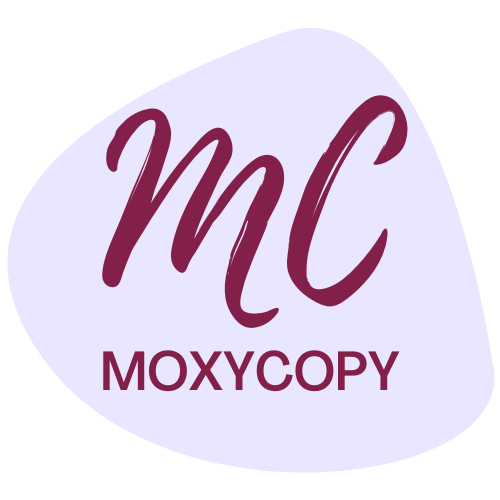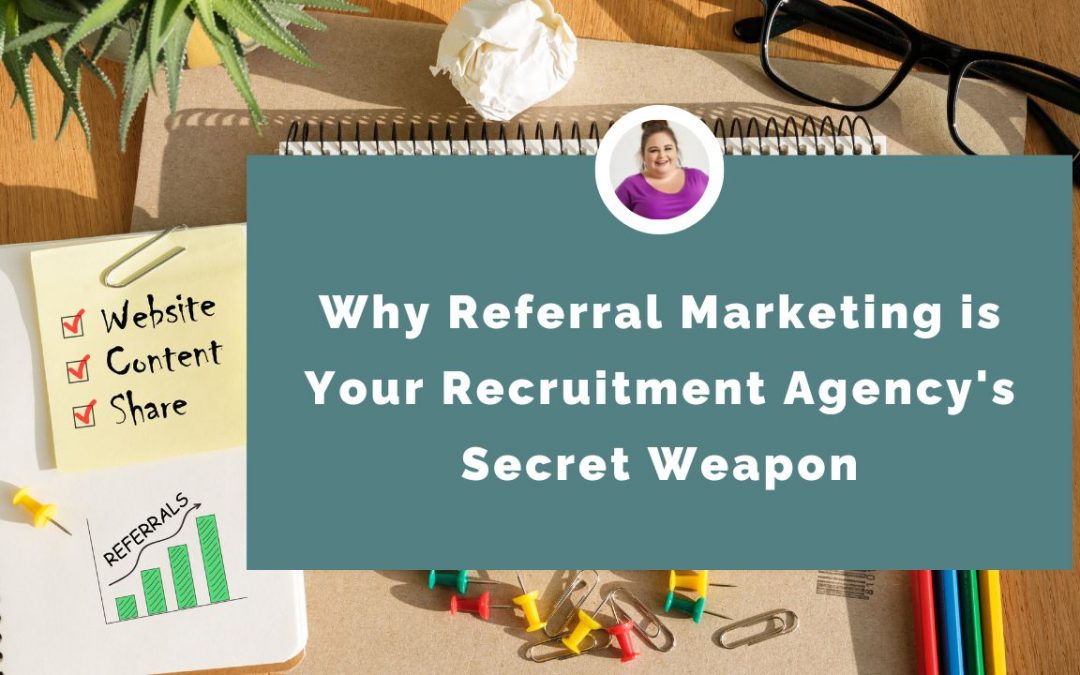Your best salespeople aren’t on your payroll.
They’re the clients you’ve already placed brilliant candidates with, and they’re just sitting there… doing absolutely nothing to help you find more talent. What a waste, right?
Look, I get it. You’re drowning in a sea of identical recruitment agencies all posting the same “We’re hiring!” content on LinkedIn. Meanwhile, you’re burning through ad spend faster than a startup burns through VC money, hoping someone—anyone—will notice your job posts among the other 47 identical ones posted that day.
But here’s the thing about referral marketing that nobody talks about: it’s not about being pushy or “salesy.” It’s about being so damn good at what you do that people can’t help but tell others about you.
Why Referral Marketing Actually Works (Shocking, I Know)
Your clients aren’t idiots. When they’ve had a great experience with your Agency—when you’ve found them that unicorn candidate who actually shows up and does the job—they remember that shit. They talk about it at industry events, over coffee, in those WhatsApp groups they think you don’t know about.
The problem? Most recruitment agencies are about as memorable as elevator music. They do the bare minimum, place the candidate, send an invoice, and disappear faster than your will to live on a Monday morning.
But your clients want to refer you. They really do. But they need a reason to remember you exist beyond that one time you found them someone decent.
The “I Don’t Want to Be Wanky” Problem
I was chatting with a recruitment agency owner recently (yes, one of you lovely people), and they said something that stuck: “I don’t want to come across like everyone else being wanky.”
Fucking exactly.
The recruitment industry is drowning in cringe-worthy marketing. Everyone’s a “talent acquisition specialist” with “game-changing solutions” and “best-in-class candidates.” No wonder your clients’ eyes glaze over when they see your content.
But referral marketing? That’s different. It’s not about you shouting into the void about how amazing you are. Referral marketing is about creating experiences so good that other people do the shouting for you.
The Lazy Person’s Guide to Referral Marketing
Here’s what actually works (and no, it doesn’t involve begging):
Stop Being Forgettable
That quarterly check-in email? Bin it. You know the one: “Just touching base to see how [Candidate Name] is getting on!” followed by a thinly veiled attempt to fish for more business.
Your clients delete that shit faster than they delete LinkedIn connection requests from people selling “revolutionary AI solutions.”
Instead, send something that actually matters:
- Market intel that makes them look smart at their next board meeting
- Salary benchmarking that saves them from overpaying (or losing good people)
- Industry gossip that’s actually useful
- Warning shots about market changes
The goal? Make your emails the ones they actually open because they know there’s something valuable inside. Not another “hope you’re well” waste of bandwidth. Make Referring You Stupid Easy
Most agencies overcomplicate this to the point where referring someone becomes a fucking PhD thesis. Don’t be those people.
Here’s what doesn’t work:
“Please complete our referral form with detailed job specifications, budget parameters, and timeline requirements…” Congratulations, you’ve just made helping you feel like homework.
Here’s what does work:
- One-line referral process: “Know someone hiring? Forward them my number: [your number]. I’ll sort them out.” That’s it: no forms, no complicated procedures, no three-step verification process.
- Make it copy-pastable. Give your clients a ready-made intro they can literally copy and paste: “This is [Your Name] from [Agency]. They found our [role] in [timeframe] and didn’t waste our time with unsuitable candidates. Worth a chat if you’re hiring. [Your contact details].”
- Be specific about what you handle. Instead of “any recruitment needs,” try “industrial temp staff,” “professional services roles,” or whatever your sweet spot is. Makes it easier for clients to know when to think of you.
- Remove the decision-making burden. Don’t ask them to pre-qualify the referral. You’re the recruitment expert—let them send anyone vaguely relevant your way and you figure out if it’s worth pursuing.
Follow Up Like a Human, Not a Robot
When someone refers you, most agencies send an email that reads like it was written by someone who’s never had a human conversation:
“Dear [Name], Thank you for your recent referral. We have received your recommendation and will be in touch with the prospective client within 24-48 hours. We appreciate your confidence in our services.”
Jesus. That’s not gratitude—that’s a fucking customer service template.
Here’s what actually works:
- Pick up the phone immediately. Not in 24-48 hours. Now. “Sarah, thanks for putting me in touch with Mark. Just spoke to him, and he seems exactly like our kind of client. I owe you a coffee.” Takes 30 seconds, shows you actually care, and keeps you front of mind.
- Make it personal. Reference the conversation that led to the referral: “Loved what you said about Mark needing someone who gets the engineering mindset. I think I’ve got just the person.”
- Give them updates. When you place someone for their referral, let them know: “Just wanted to say thanks again for introducing me to Mark. Placed someone with them yesterday—they’re over the moon. Next coffee’s on me.”
- Acknowledge their reputation. “Mark mentioned you’d told him I was the only recruiter worth talking to. No pressure there!” Show you understand they’ve put their credibility on the line for you.
Reward the Behaviour You Want
Gift cards are what you give to employees who’ve hit their monthly target. Your referring clients deserve better than a £20 voucher to John Lewis (that they’ll probably re-gift anyway).
- Give them exclusive access. When you’ve got a candidate who’s absolute gold, offer them first dibs before anyone else even knows they exist. “Got someone you need to meet before I tell anyone else about them.”
- Invite them to shit that matters: industry events, networking drinks, salary benchmarking sessions. Make them feel like insiders, not just clients who occasionally throw you some business.
- Save them time and hassle. The best reward for a great client who refers you? Never wasting their time with unsuitable candidates again. Ever. Build a profile of exactly what they want and stick to it religiously.
- Share the love publicly (with permission). Case studies, LinkedIn recommendations, speaking opportunities at industry events. Help build their reputation while building yours.
- Early warning system. When you hear industry gossip that affects their business, they’re the first to know. Competitor expanding? New legislation coming? Key person leaving a client company? They get the intel first.
The best referral rewards aren’t transactions—they’re ongoing proof that working with you makes their professional life easier and more successful.
The Email You Should Be Sending (But Probably Aren’t)
Instead of that painful “how are things going?” email, try this:
Subject: Three candidates walked out this week (industry update)
Hi [Client],
Just a heads up—saw three people hand in their notice this week at [Competitor Company]. Thought you might want to know before the good ones get snapped up.
If you hear of anyone looking, I’ve got some solid candidates lined up.
Cheers,[Your name]
See? Useful, not pushy, and gives them a reason to forward it to someone who might need your help.
Why Your Current Approach Isn’t Working
You’re treating referrals like a transaction instead of a relationship. You place someone, send a thank you note, and expect clients to magically remember you six months later when their mate mentions they’re hiring.
That’s not how brains work. People remember stories, not services. They remember the time you found them a candidate in 48 hours when they were desperate. They remember you warning them about that candidate who looked good on paper but had red flags. They remember you being straight with them when everyone else was blowing smoke up their arse.
The Long Game (Because Quick Fixes Are for Amateurs)
Referral marketing isn’t a sprint; it’s a marathon where you actually enjoy running (weird analogy, but stick with me). It’s about building relationships so solid that when someone asks your client, “know any good recruitment agencies?” your name is the only one that comes to mind.
This means:
- Actually giving a shit about your clients’ businesses beyond the immediate placement
- Being honest when you don’t have the right candidate (instead of pushing square pegs into round holes)
- Staying in touch without being annoying (there’s a fine line, and most agencies pole-vault over it)
Referral Marketing – The Bottom Line
Your clients are sitting on a goldmine of referral opportunities, but they’re not mind readers. They need a reason to remember you, a way to refer you, and proof that you’re worth recommending.
Stop competing with every other Agency on price and start competing on being genuinely unforgettable. Because when you’re the Agency that actually gets results without the bullshit, referrals aren’t something you have to ask for—they just happen.
And honestly? Referral marketing is a much better place to be than desperately posting “we’re hiring” content on LinkedIn for the millionth time this week.
Ready to stop being just another recruitment agency? Get in touch to find out how the right content strategy can turn your clients into your biggest advocates.

Hi, I’m Emma, a content and copywriter who spent 20 years in recruitment (360, industrial temp, the whole shebang) before I got sick of watching agencies struggle with marketing that sounds like everyone else’s. Now I help solo recruiters and agencies create content that actually gets noticed and converts—the kind that makes clients think “shit, I should forward this” instead of hitting delete.
If you’re tired of spiralling ad spend or sick of relying on expensive job boards and want marketing that actually reflects how you talk to clients, check out my website or book a call. I’ll tell you exactly how I can take this marketing headache off your hands so you can get back to what you’re actually good at.

